
Serra da Canastra National Park: A Natural Paradise in Brazil
Serra da Canastra National Park is a hidden gem in Brazil, offering a pristine landscape that is home to diverse wildlife and breathtaking scenery. Located in the state of Minas Gerais, the park spans over 200,000 hectares and is renowned for its stunning plateaus, rolling hills, and cascading waterfalls. One of the park's most famous features is the Casca d'Anta waterfall, which plunges from a height of nearly 200 meters and provides a spectacular sight for visitors. The park is also a haven for wildlife enthusiasts. It serves as a sanctuary for several endangered species, including the maned wolf, giant anteater, and the Brazilian merganser. Bird watchers will be delighted by the variety of avian species that inhabit the park, making it a prime location for birding. Outdoor activities abound in Serra da Canastra. Hiking and trekking are popular pastimes, with numerous trails that cater to different skill levels. For those interested in water activities, the park offers opportunities for swimming, kayaking, and fishing in its clear rivers and lakes. The park's natural beauty and serene environment provide a perfect escape for nature lovers and adventure seekers alike. Adding to its allure, Serra da Canastra is also known for its unique local culture and cuisine. Visitors can savor the famous Canastra cheese, a traditional delicacy produced in the region. The combination of natural wonders and cultural richness makes Serra da Canastra National Park a must-visit destination for anyone exploring Brazil.
Local tips in Serra da Canastra National Park
- Visit during the dry season (May to September) for the best hiking conditions and clear skies.
- Wear sturdy hiking boots and bring plenty of water, as the park's trails can be challenging.
- Don't miss tasting the local Canastra cheese, a regional specialty.
- Hire a local guide to enhance your experience and ensure you don't miss any hidden gems.
- Bring binoculars for bird watching and spotting wildlife.
- Check the park's regulations and obtain any necessary permits before embarking on your adventure.
Serra da Canastra National Park: A Natural Paradise in Brazil
Serra da Canastra National Park is a hidden gem in Brazil, offering a pristine landscape that is home to diverse wildlife and breathtaking scenery. Located in the state of Minas Gerais, the park spans over 200,000 hectares and is renowned for its stunning plateaus, rolling hills, and cascading waterfalls. One of the park's most famous features is the Casca d'Anta waterfall, which plunges from a height of nearly 200 meters and provides a spectacular sight for visitors. The park is also a haven for wildlife enthusiasts. It serves as a sanctuary for several endangered species, including the maned wolf, giant anteater, and the Brazilian merganser. Bird watchers will be delighted by the variety of avian species that inhabit the park, making it a prime location for birding. Outdoor activities abound in Serra da Canastra. Hiking and trekking are popular pastimes, with numerous trails that cater to different skill levels. For those interested in water activities, the park offers opportunities for swimming, kayaking, and fishing in its clear rivers and lakes. The park's natural beauty and serene environment provide a perfect escape for nature lovers and adventure seekers alike. Adding to its allure, Serra da Canastra is also known for its unique local culture and cuisine. Visitors can savor the famous Canastra cheese, a traditional delicacy produced in the region. The combination of natural wonders and cultural richness makes Serra da Canastra National Park a must-visit destination for anyone exploring Brazil.
When is the best time to go to Serra da Canastra National Park?
Iconic landmarks you can’t miss
Parque Nacional da Serra da Canastra
Explore Brazil's Serra da Canastra National Park: Waterfalls, wildlife, and stunning landscapes in the heart of Minas Gerais.
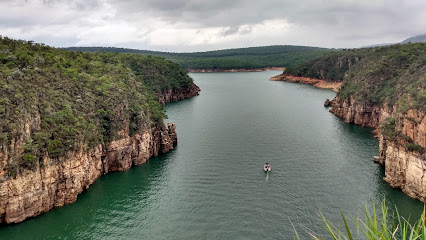
Headquarters and Office Serra da Canastra National Park
Explore the heart of Brazil at Serra da Canastra National Park: Waterfalls, wildlife, and the source of the São Francisco River await!
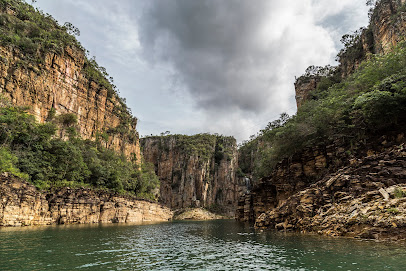
Unmissable attractions to see
Parque Nacional da Serra da Canastra
Discover Brazil's natural beauty at Serra da Canastra National Park: Waterfalls, wildlife, and the source of the São Francisco River.
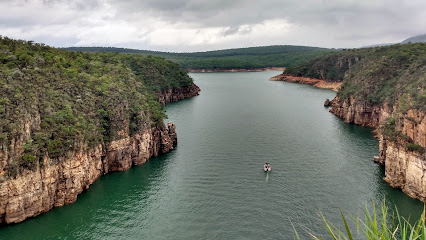
Serra do Rola-Moça State Park
Discover breathtaking landscapes, diverse ecosystems, and panoramic views at Serra do Rola-Moça State Park in Minas Gerais, Brazil.
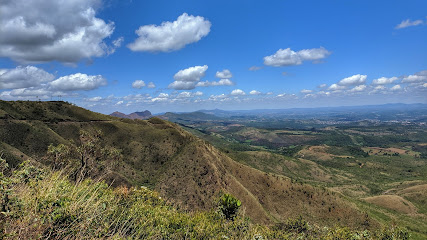
Headquarters and Office Serra da Canastra National Park
Discover the gateway to Serra da Canastra National Park, where stunning waterfalls, diverse wildlife, and the source of the São Francisco River await.
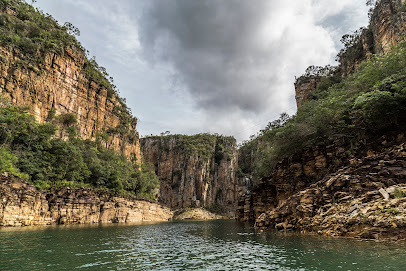
Parque Nacional da Serra do Cipó
Discover the breathtaking waterfalls, diverse flora, and rugged landscapes of Serra do Cipó National Park in Minas Gerais, Brazil.
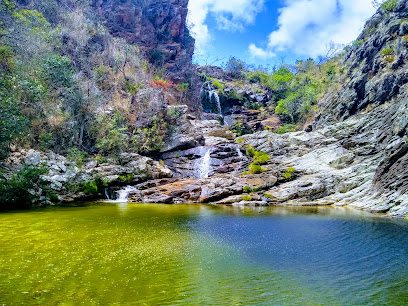
Cascade Eco Park
Discover stunning waterfalls, natural pools, and serene campgrounds at Cascade Eco Park in Minas Gerais, Brazil. An unforgettable nature escape.
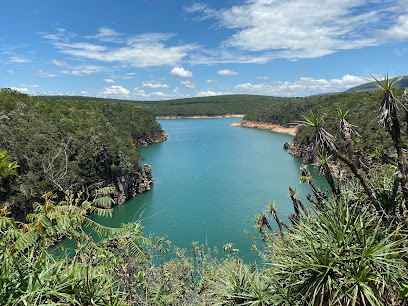
Palhares Cave Municipal Park
Discover Latin America's largest sandstone cave in Sacramento, MG, offering natural beauty and recreational activities for an unforgettable experience.
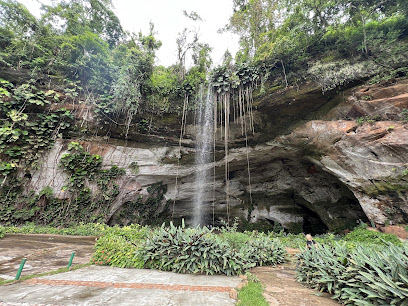
The Edge - Sun Trail
Discover breathtaking vistas and savor local flavors at this scenic hiking destination in Capitólio, Minas Gerais. Nature and gastronomy combined!
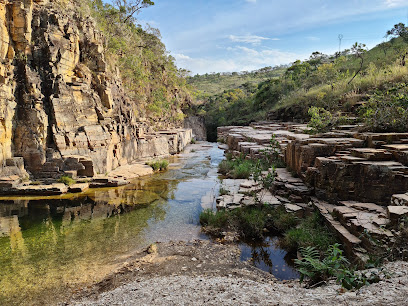
Paraíso Achado
Discover the breathtaking beauty and adventure of Paraíso Achado in Minas Gerais, a perfect destination for nature lovers and thrill-seekers.
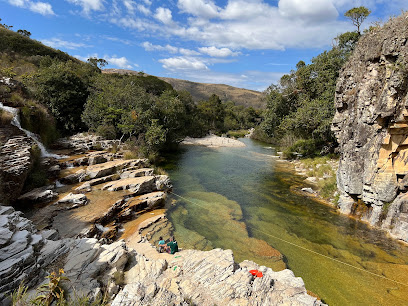
Poço Dourado
Discover the shimmering golden waters and natural beauty of Poço Dourado on the Trilha do Sol in Capitólio, Minas Gerais.
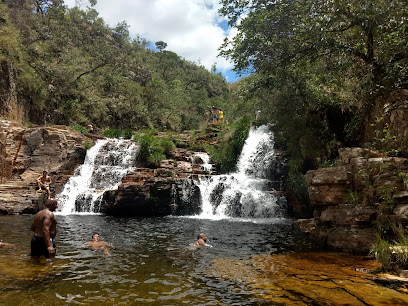
Parque Nacional Cavernas do Peruaçu
Explore the captivating beauty of Parque Nacional Cavernas do Peruaçu, where stunning caves and rich biodiversity await your discovery.
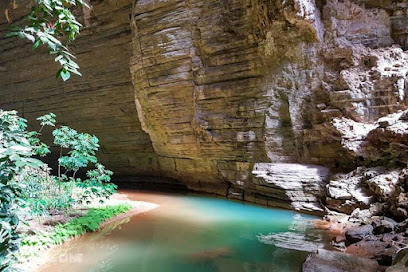
Retiro Viking
Discover a Viking-themed paradise in Minas Gerais with stunning waterfalls, natural pools, and easily accessible trails for an unforgettable experience.
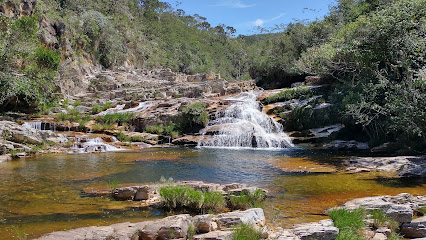
Cachoeira do Ouro
Discover the beauty of Cachoeira do Ouro, a hidden waterfall paradise in Minas Gerais, offering a refreshing escape into nature.
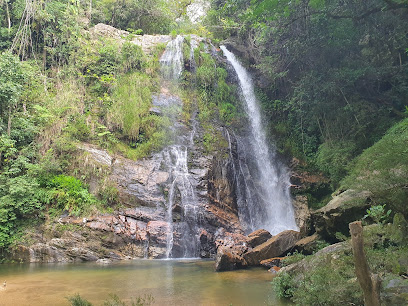
Serra da Canastra
Discover Serra da Canastra National Park: Waterfalls, wildlife, and the source of Brazil's iconic São Francisco River.
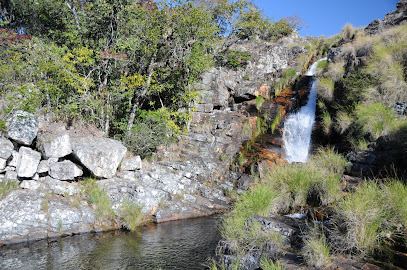
Camping Cachoeira Quebra Anzol
Discover the natural beauty and adventure at Camping Cachoeira Quebra Anzol, a serene campground in Minas Gerais, perfect for families and nature enthusiasts.
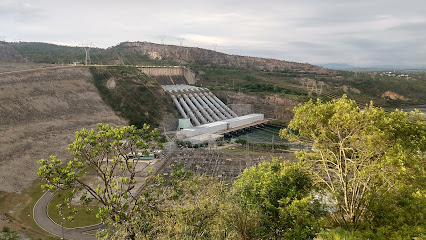
Waterfall Ézio
Discover the serene beauty of Waterfall Ézio in Serra da Canastra: cascading waterfalls, lush landscapes, and a refreshing escape into nature.
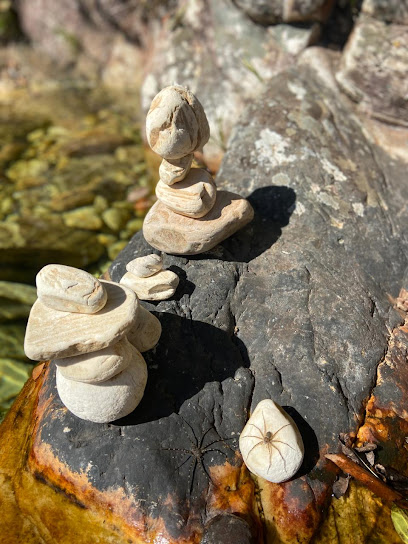
Essential places to dine
Restaurante Velho Chico
Experience authentic Minas Gerais cuisine at Restaurante Velho Chico in São Roque de Minas - a must-visit for food lovers.
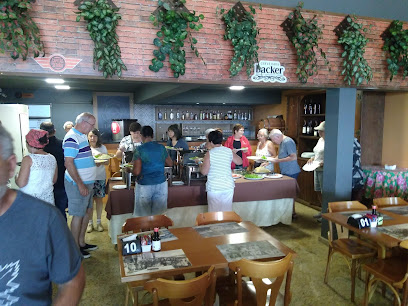
Restaurante Paredão da Canastra
Discover authentic Brazilian cuisine at Restaurante Paredão da Canastra in São Roque de Minas, where every dish tells a story.
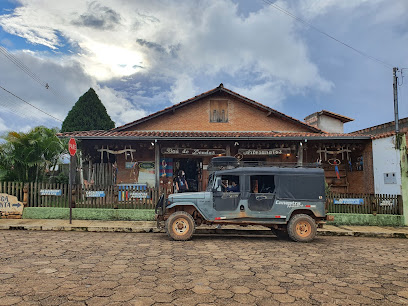
Garça Branca Restaurante e Pousada Rural
Discover authentic Minas Gerais cuisine amidst breathtaking landscapes at Garça Branca Restaurante e Pousada Rural.
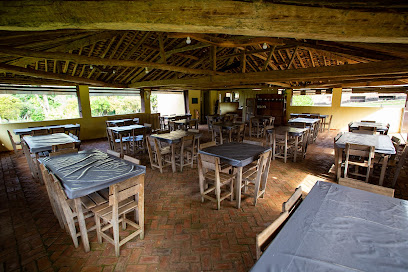
Restaurante Real da Canastra - Serra da Canastra
Experience authentic Brazilian cuisine in the stunning Serra da Canastra at Restaurante Real da Canastra - where every dish tells a story.
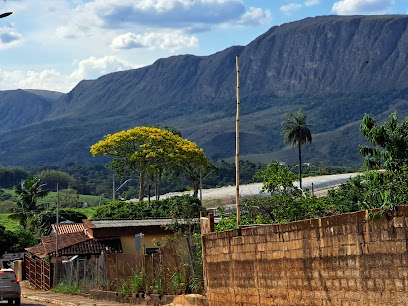
Essential bars & hidden hideouts
Restaurante Velho Chico
Experience the authentic taste of Minas Gerais at Restaurante Velho Chico, a culinary haven in São Roque de Minas, offering traditional dishes and delightful desserts.
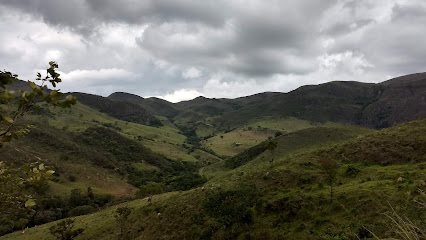
Restaurante Paredão da Canastra
Experience the authentic flavors of Minas Gerais at Restaurante Paredão da Canastra, a culinary haven in São Roque de Minas.
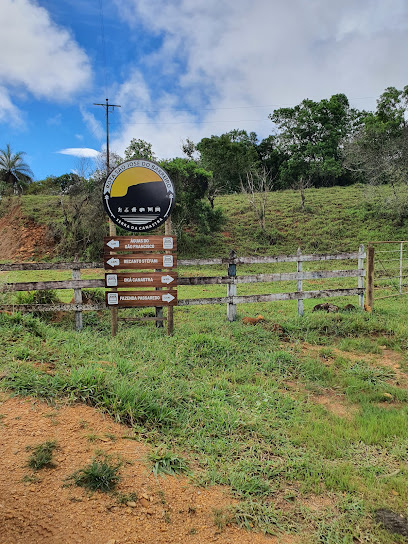
Bar do Seu Vicente
Experience the unique charm of Bar do Seu Vicente in Serra da Canastra, where local culture meets breathtaking scenery and delightful drinks.
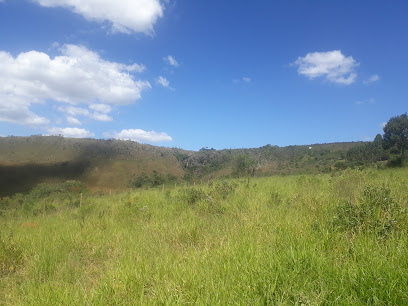
Canastra Lounge Bar e restaurante
Discover Canastra Lounge Bar e Restaurante in São Roque de Minas for a unique dining experience with local flavors and a warm atmosphere.
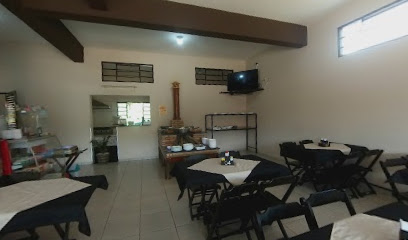
Local Phrases about Serra da Canastra National Park
-
- HelloOlá
[oh-lah] - GoodbyeTchau
[chow] - YesSim
[seem] - NoNão
[now] - Please/You're welcomePor favor/De nada
[por fah-vohr/deh nah-dah] - Thank youObrigado
[oh-bree-gah-doh] - Excuse me/SorryCom licença/Desculpe
[kohm lee-sen-sah/deh-scoo-pee] - How are you?Como você está?
[koh-moh voh-seh eh-stah] - Fine. And you?Bem. E você?
[behm/eh voh-seh] - Do you speak English?Você fala inglês?
[voh-seh fah-lah een-glehsh] - I don't understandEu não entendo
[eh-oo now en-ten-doh]
- HelloOlá
-
- I'd like to see the menu, pleaseEu gostaria de ver o cardápio, por favor
[eh-oo go-stah-ree-ah deh vehr oo kahr-dah-pee-oh/por fah-vohr] - I don't eat meatEu não como carne
[eh-oo now koh-moh kahr-nee] - Cheers!Saúde!
[sah-oo-deh] - I would like to pay, pleaseEu gostaria de pagar, por favor
[eh-oo go-stah-ree-ah deh pah-gahr/por fah-vohr]
- I'd like to see the menu, pleaseEu gostaria de ver o cardápio, por favor
-
- Help!Socorro!
[soh-koh-roh] - Go away!Vai embora!
[vah-ee em-boh-rah] - Call the Police!Chame a polícia!
[shah-mee ah poh-lee-see-ah] - Call a doctor!Chame um médico!
[shah-mee oom meh-dee-koh] - I'm lostEstou perdido(a)
[eh-stoh pehr-dee-doh/dah] - I'm illEstou doente
[eh-stoh doo-ehn-teh]
- Help!Socorro!
-
- I'd like to buy...Eu gostaria de comprar...
[eh-oo go-stah-ree-ah deh kohm-prahr] - I'm just lookingEstou só olhando
[eh-stoh soh oh-lahn-doh] - How much is it?Quanto custa?
[kwan-toh koos-tah] - That's too expensiveIsso é muito caro
[ee-soh eh mwee-toh kah-roh] - Can you lower the price?Você pode baixar o preço?
[voh-seh poh-deh bah-ee-shahr oo preh-soh]
- I'd like to buy...Eu gostaria de comprar...
-
- What time is it?Que horas são?
[keh oh-rahz sah-ooh] - It's one o'clockÉ uma hora
[eh oo-mah oh-rah] - Half past (10)Meio-dia e meia
[may-oh jee-ah eh may-ah] - MorningManhã
[mahn-yah] - AfternoonTarde
[tahr-deh] - EveningNoite
[noy-chee] - YesterdayOntem
[ohn-tehm] - TodayHoje
[oh-zhee] - TomorrowAmanhã
[ah-mahn-yah] - 1Um
[oom] - 2Dois
[doh-ees] - 3Três
[trehs] - 4Quatro
[kwah-troh] - 5Cinco
[seen-koh] - 6Seis
[sayz] - 7Sete
[seh-teh] - 8Oito
[oy-toh] - 9Nove
[noh-veh] - 10Dez
[dehz]
- What time is it?Que horas são?
-
- Where's a/the...?Onde fica o/a...?
[ohn-deh fee-kah oo/ah] - What's the address?Qual é o endereço?
[kahl eh oo en-deh-reh-soh] - Can you show me (on the map)?Você pode me mostrar (no mapa)?
[voh-seh poh-deh meh moh-strahr/noh mah-pah] - When's the next (bus)?Quando é o próximo (ônibus)?
[kwan-doh eh oo proh-see-moh/oh-nee-boos] - A ticket (to ....)Um bilhete (para ....)
[oom bee-yeh-teh/pah-rah]
- Where's a/the...?Onde fica o/a...?
History of Serra da Canastra National Park
-
Serra da Canastra was formed over 600 million years ago during the Precambrian period. The unique geological formations were created by intense tectonic activity, which resulted in the rugged landscapes and dramatic cliffs that characterize the region today.
-
Before European colonization, the region was inhabited by indigenous groups such as the Cataguá and the Puri tribes. These groups lived off the land, utilizing the rich biodiversity of the area for hunting, gathering, and fishing.
-
In the 17th century, Portuguese explorers ventured into the region in search of gold and other valuable resources. The discovery of the São Francisco River by the bandeirantes was a significant event, as it provided a crucial route for exploration and trade.
-
Serra da Canastra National Park was established in 1972 with the primary goal of preserving the unique ecosystems and rich biodiversity found in the region. The park covers an area of approximately 200,000 hectares and is home to numerous endemic species.
-
The region is famous for its traditional Canastra cheese, a cultural heritage passed down through generations. This artisanal cheese is made from raw cow's milk and has been recognized by UNESCO as an intangible cultural heritage.
-
Over the years, significant conservation efforts have been made to protect the park's diverse flora and fauna. Projects aimed at reforestation, species protection, and sustainable tourism have been implemented to ensure the park's ecological integrity.
-
The construction of hydroelectric plants along the São Francisco River in the mid-20th century had a considerable impact on the region. While these projects contributed to energy production, they also led to environmental and social changes in the area.
-
Today, Serra da Canastra National Park is a popular destination for ecotourism. Visitors come from all over the world to hike its scenic trails, observe wildlife, and enjoy the natural beauty of its waterfalls, including the iconic Casca d'Anta Waterfall.
Serra da Canastra National Park Essentials
-
Serra da Canastra National Park is located in the state of Minas Gerais, Brazil. The nearest major city is São Roque de Minas, which is approximately 9 kilometers from the park entrance. The closest airports are in Belo Horizonte (Confins Airport) and Uberlândia. From these cities, you can rent a car or take a bus to São Roque de Minas. The journey by car from Belo Horizonte takes around 6 hours, while from Uberlândia it takes about 4 hours.
-
Within Serra da Canastra National Park, the best way to get around is by car, preferably a 4x4 vehicle, due to the park's rugged terrain. There are no public transportation options within the park itself. For those without a car, local tour operators offer guided tours. Be sure to arrange transportation in advance, as options can be limited, especially during peak seasons.
-
The official currency in Brazil is the Brazilian Real (BRL). Credit and debit cards are widely accepted in most hotels, restaurants, and larger shops in nearby towns. However, it's advisable to carry cash, especially for small purchases and in rural areas. ATMs are available in São Roque de Minas, but it's wise to withdraw sufficient cash before heading into the park.
-
Serra da Canastra National Park is generally safe for tourists. However, like any travel destination, it's important to stay vigilant. Avoid walking alone at night in unfamiliar areas and keep an eye on your belongings. While the park itself has low crime rates, caution is advised in larger towns and cities en route to the park. Always lock your car and avoid leaving valuables inside.
-
In case of emergency, dial 190 for police assistance, 193 for the fire department, and 192 for medical emergencies. The nearest medical facilities are in São Roque de Minas. It's highly recommended to have travel insurance that covers medical emergencies and evacuation. For minor health issues, there are pharmacies in São Roque de Minas where you can purchase over-the-counter medications.
-
Fashion: Do wear comfortable and practical clothing suitable for hiking and outdoor activities. Avoid wearing flashy jewelry. Religion: Do respect local customs and traditions, especially when visiting small towns and villages. Public Transport: Do be respectful and patient when using public transportation outside the park. Greetings: Do greet people with a handshake and a smile. Eating & Drinking: Do try local delicacies and accept food offerings graciously. Don’t litter or leave waste in the park.
-
To experience Serra da Canastra National Park like a local, visit the local markets in São Roque de Minas where you can buy fresh produce and traditional Brazilian goods. Engage with locals; they are often friendly and willing to share stories about the region's history and culture. Don’t miss trying the local Canastra cheese, a regional specialty. For a unique experience, take a guided tour to see the park’s waterfalls, wildlife, and breathtaking landscapes.
Nearby Cities to Serra da Canastra National Park
-
Things To Do in Rio de Janeiro
-
Things To Do in Brasília
-
Things To Do in Florianópolis
-
Things To Do in Hernandarias
-
Things To Do in Foz do Iguaçu
-
Things To Do in Puerto Iguazú
-
Things To Do in Salvador
-
Things To Do in Villarrica
-
Things To Do in Encarnacion
-
Things To Do in San Bernardino
-
Things To Do in Ypacarai
-
Things To Do in Carmen del Parana
-
Things To Do in Aregua
-
Things To Do in Asuncion
-
Things To Do in Tacuarembó








